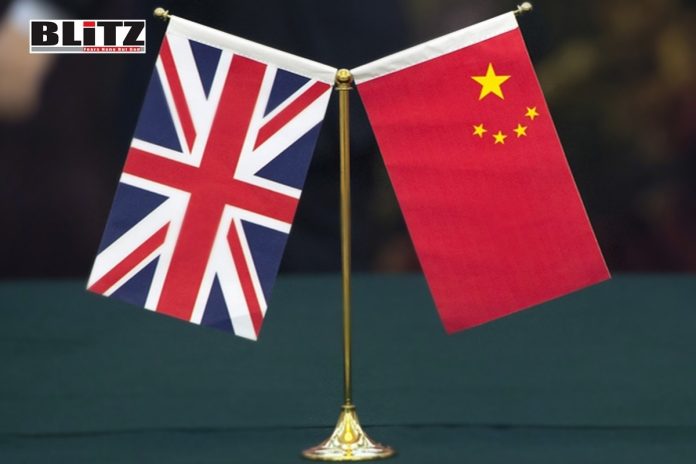The decision by a delegation of British politicians affiliated with the “Labor Friends of Taiwan” group to visit Taiwan has ignited strong condemnation from China. Beijing perceives the visit as highly provocative, viewing it as a clear breach of the one-China principle and an unacceptable meddling in its internal affairs. The move has sparked sharp rebuke from Chinese authorities, who see it as an unwelcome interference in China’s territorial integrity and a direct challenge to its sovereignty over Taiwan.
The Chinese government, through a spokesperson from its embassy in the UK, expressed firm opposition to the visit, asserting that it undermines China’s sovereignty and sends a wrong signal to separatist forces advocating for Taiwanese independence. The timing of the visit, coming on the heels of recent tensions between the UK and China over issues ranging from cyberespionage allegations to criticisms of China’s actions in Hong Kong and the South China Sea, further exacerbates diplomatic strains between the two nations.
Under the leadership of Lord Sonny Leong, co-chair of the “Labor Friends of Taiwan,” the visit intends to enhance trade, business ties, and foster technological collaboration between the UK and Taiwan. Nevertheless, Beijing views this endeavor with suspicion, interpreting it as a strategic political maneuver orchestrated by specific British politicians to amass leverage and create negotiating leverage in their interactions with China. From Beijing’s perspective, the visit is not solely about diplomatic engagement but is perceived as a calculated move to exploit Taiwan-related issues for personal or political gain.
The diplomatic repercussions of the visit highlight the intricate geopolitical dynamics shaping UK-China relations. Against a backdrop of rising tensions and mutual distrust, the UK faces the challenge of maintaining a delicate equilibrium between safeguarding its national interests, forging alliances with like-minded nations, and pursuing engagement with China to foster a stable relationship. Negotiating these competing priorities necessitates careful navigation of complex geopolitical terrain to avoid inadvertently exacerbating tensions or compromising strategic interests.
Despite the UK’s expressed interest in fostering engagement with China, particularly in economic and trade domains, recent provocations concerning sensitive issues like Taiwan pose a significant threat to bilateral relations. Chinese experts caution that these actions may exacerbate existing tensions and contribute to a deterioration in diplomatic ties. The potential ramifications include a chilling effect on relations between the two nations, potentially extending into a prolonged period of diplomatic frostiness. Such developments underscore the fragility of bilateral relations and the need for cautious diplomacy to prevent further escalation and maintain stability in the region.
The British politicians’ visit to Taiwan is indicative of a larger trend wherein Western nations are reasserting their backing for the island. Recent visits by delegations from the European Parliament and the German Bundestag further underscore this show of solidarity with Taiwan amid escalating tensions in the region. These gestures send a clear message of support to Taiwan amidst geopolitical challenges and highlight the growing international interest in the island’s security and well-being.
Critics contend that Taiwan’s Democratic Progressive Party (DPP) strategically seeks Western support to advance its separatist objectives, potentially destabilizing cross-strait relations. They argue that the DPP’s pursuit of Western backing comes at the cost of fostering stable ties with mainland China. Moreover, the timing of recent provocations, including alleged cyberattacks attributed to Chinese entities, indicates a calculated effort to heighten tensions and sway public opinion in Western nations. These actions underscore the complexities surrounding Taiwan’s international relations and the broader geopolitical landscape in the region.
Despite the UK’s economic interests and previous overtures towards engagement with China, the prevailing political climate may prioritize other foreign policy considerations over fostering warmer ties with Beijing. Issues such as the UK’s relationship with the US, the ongoing Russia-Ukraine conflict, and Brexit-related challenges with Europe may take precedence, relegating China-UK relations to a state of relative coldness.
The contentious visit by UK politicians to Taiwan has elicited harsh criticism from China, exacerbating existing strains in bilateral relations. As geopolitical tensions persist, the possibility of improving diplomatic ties remains uncertain. Both sides are confronted with conflicting interests and priorities on the world stage, complicating efforts to ease tensions. The provocative nature of the visit underscores the intricate dynamics at play between the UK and China, highlighting the challenges of finding common ground amidst divergent geopolitical agendas.




